“Africa to the world” has been a popular rallying cry from the continent and its diaspora as the global appetite for its culture has grown rapidly. Many hope to further extend its reach. Yet, as African artisans connect and build upon each other’s success, they’ve come to center themselves. Recently, Rema told Rolling Stone he’s resisting the urge to prioritize globalization in his music. “I’ll start with what I love,” he said. “The rest of the world can catch up.” Made in Africa is a monthly column by Rolling Stone staff writer Mankaprr Conteh that celebrates and interrogates the lives, concerns, and innovations of African musicians from their vantage point.
Nigeria is the epicenter of Afrobeats — the continent’s largest musical export — and in Nigeria, like other African nations, there is arguably little to have faith in right now. As the Democratic Republic of Congo and Sudan face acute humanitarian crises, massive protests against pervasive hunger and bad governance in Nigeria became deadly this month. The Associated Press reports that security personnel killed at least 22 and 700 protestors were arrested.
The Nigerian demonstrations follow June’s similar and effective protests against tax hikes in Kenya, confidently soundtracked by local rapper Sabi Wu’s “Reject Hio Bill.” It’s set to the beat of Kendrick Lamar’s “Not Like Us.” Somehow, centuries of cyclical plunder and poverty have not killed the African spirit. Colloquially, we appoint ourselves ministers of enjoyment and seek a good time. While many musicians channel their frustrations into their art – like Burna Boy on his political opus African Giant or “20:10:20,” about a massacre at Nigeria’s #EndSARS protests almost four years ago – Afrobeats in particular is often jubilant. On some of this summer’s best Nigerian albums, four artists primarily looked inward, making sense of their lives through the divine.
Street-pop savant Asake’s Lungu Boy finds him as spiritually grounded as ever. He’s already sung of God, good, evil, and purpose across his discography and through several languages, religions, and cultures, including on 2023’s “Yoga.” Asake told Rolling Stone he wrote the meditative track after two women were killed in a crowd crush outside a highly anticipated London show of his in 2022. Lungu Boy keeps the faith but explores new sounds, becoming Asake’s most rhythmically and emotionally diverse album yet. His fame was built upon fusions of South African amapiano and Yoruba fuji that he and producer Magicsticks helped shepherd into the Afrobeats mainstream. Yet here, Asake finesses everything from Afro-R&B in the key of Wizkid on “MMS” to the New Orleans bounce and hip-house of Travis Scott collab “Active,” to the dancehall flip of a Mary J. Blige classic for “Whine” with Brazilian funk star Ludmilla.
Rema’s surprise album Heis, too, is a testimony, albeit a threatening one. “I’m not going take it easy on my hater,” he bellows on “HEHEHE,” one of the most intense tracks in its barrage of raw, percussive, no-holds-barred Afrobeats. Over the course of his short rise to the top, he’s gotten darker — so dark, in fact, that after a groundbreaking, sold-out show at London’s O2 arena, he was accused of Satanism. Rema vehemently refutes those claims, but on his new album, he seems to have some fun with them too, ghoulishly shape-shifting his matured baritone. The O2 symbols condemned as devilish were actually relics of his hometown of Benin City, about 200 miles east of Lagos; Heis doubles down on their essence and hearkens back to the Afrobeats of the 2010s, unpolluted by the kind of crossover success he earned on his hit “Calm Down,” with Selena Gomez. The result is buzzy, visceral, sweat-it-out music that no one else is making. So far, it’s the strongest contender for the best Afrobeats album of the year.
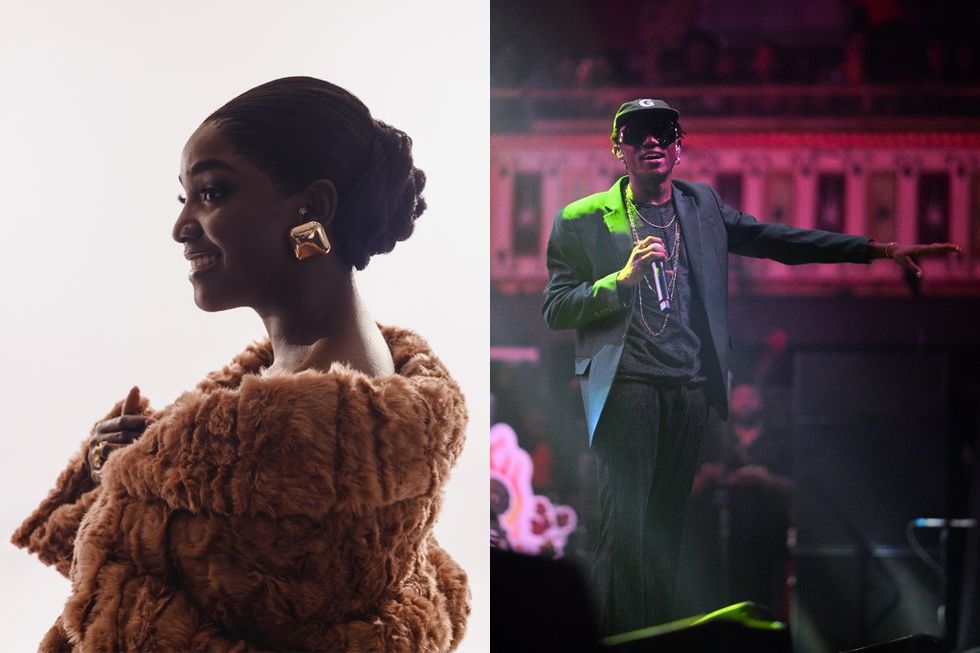
With less commotion, delicate singer Simi also spends much of her soothing sixth studio album steeped in unmistakable Afrobeats, but where Rema’s was made for a rave, Simi’s Lost and Found is wedding material. It can border on corny, but it’s refreshingly reminiscent of the type of music your deaconess auntie might love. Lost and Found is filled with allusions to Christianity, with songs like “Miracle Worker,” “Messiah,” and the striking titular ballad where she sings, “If Christ had to be crucified, who am I not to count my blessings?” (Simi wrote and produced that standout by herself.) In an era where Afrobeats has come to take more cues from American R&B, songs like “One of One,” “Alafia,” and “Romance Therapy” feel warmly hyperlocal.
In contrast, young crooner Victony’s Stubborn shines most when it leans into hip-hop and R&B, like the bright and jazzy “Tiny Apartment,” with Guyanese American New Yorker SAINt JHN. It gets boring when Victory rests on mainstream hallmarks, like the spaghetti Western, flute-like whistle that breezes through his music like tumbleweeds, or the inflections of amapiano that have oversaturated the market. Victony is really at his best on “History,” sung softly in poetic Pidgin, as he reminisces on the hardships that once defined his life. “Remember that time/When the suffer wan dey be like everlasting?” he asks. May every African see better days like he has.
Loosies: More uplifting Afropop I’ve loved this summer
“Perspective,” Juls feat. Masego: Bossa nova meets Ghanaian highlife in this sexy celebration of cross-cultural smoothness
“Yebo,” TxC and Davido feat. LeeMckrazy, Tony Duardo, and Djy Biza: The South African DJ duo of Tarryn Reid and Clairise Hefke get down with amapiano heavy hitters and a Nigerian icon
“One Call Away,” Spinall, Omah Lay, and Tyla: A percussive, sweetly hopeful duet between star Afropop vocalists
“Big Vibe,” Yemi Alade: A Wizkid-coded standout from the vet’s relentlessly positive and pan-African sixth studio album, Rebel Queen
“manic pixie not so dream girl,” Solis4Evr: “Couldn’t you tell you wouldn’t last 500 days?” the Lagos-based pop rocker croons cleverly as the anti-Zooey-Deschanel type
“eDube,” Lollise: From Botswana and based in Brooklyn, Lollise sings of her family’s resilience after her father’s death in this creative take on Congolese soukous
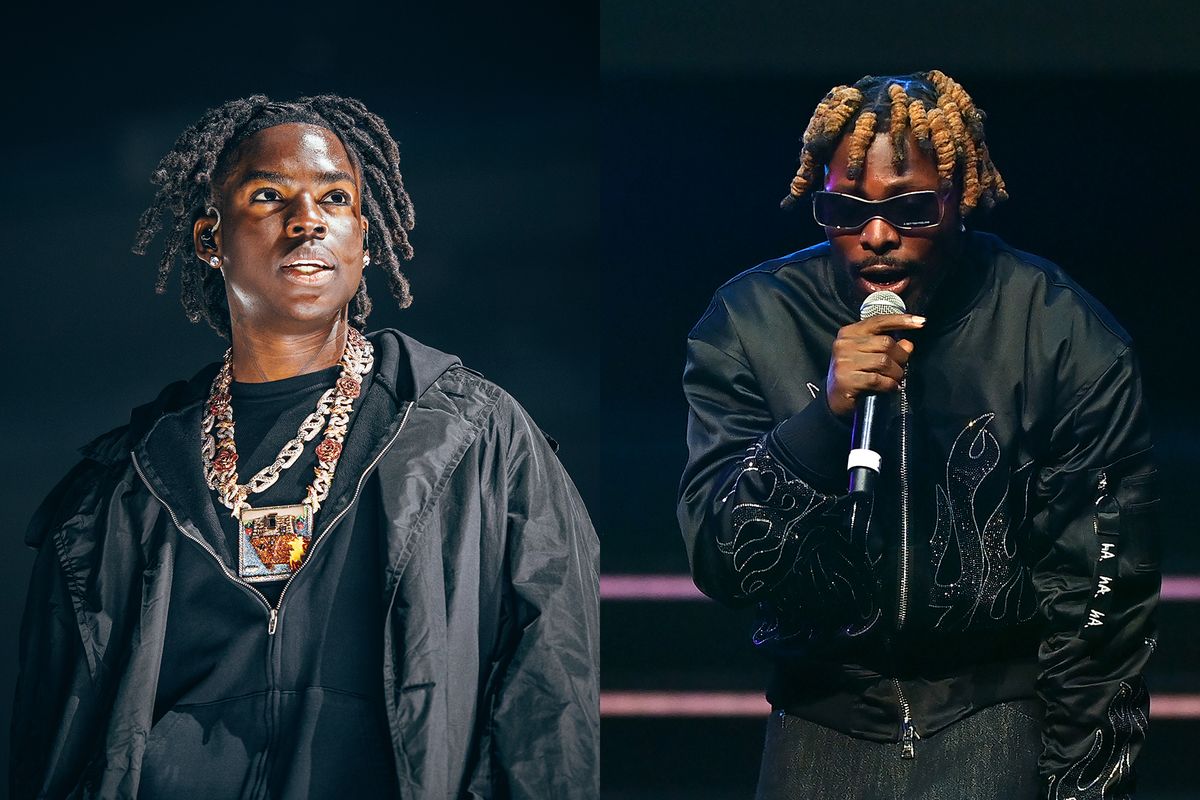






 Coat (polyester and wool), shirt (silk), Dries Van Noten, SSENSE.com / Flower (silk), M&S Schmalberg
Coat (polyester and wool), shirt (silk), Dries Van Noten, SSENSE.com / Flower (silk), M&S Schmalberg
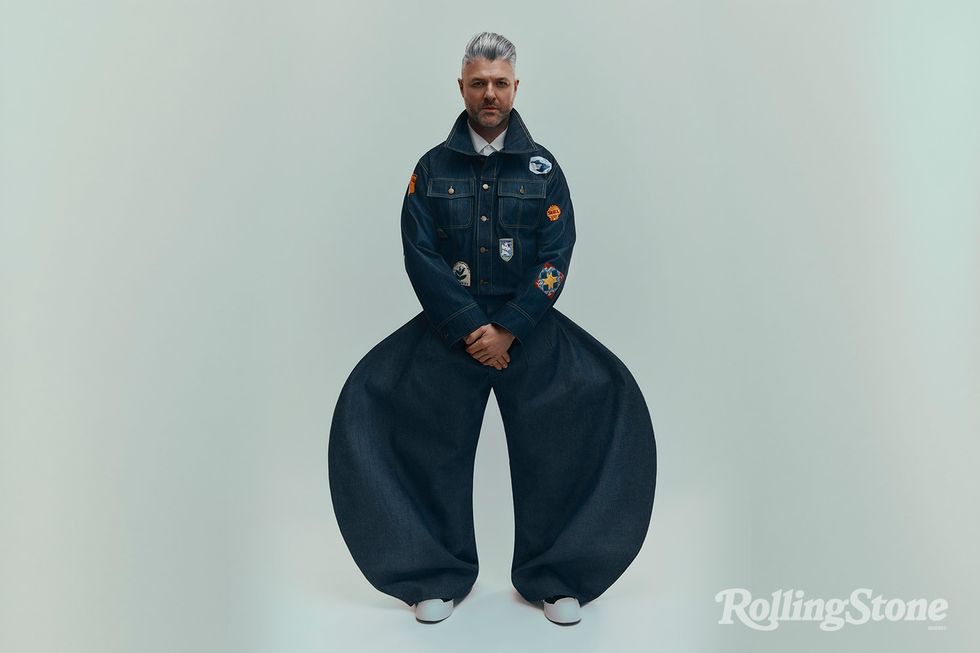 Blouson (denim and hand embroidered patches), WJ Crosson / Shit (polyester), Homme plissé Issey Miyake, Holt Renfrew/Pants from personal collection/ Shoes(canvas), Marni
Blouson (denim and hand embroidered patches), WJ Crosson / Shit (polyester), Homme plissé Issey Miyake, Holt Renfrew/Pants from personal collection/ Shoes(canvas), Marni Jacket and pants (virgin wool), shirt (acrylic coated cotton), Moschino / Shoes from Pierre Lapointe's personal collection
Jacket and pants (virgin wool), shirt (acrylic coated cotton), Moschino / Shoes from Pierre Lapointe's personal collection
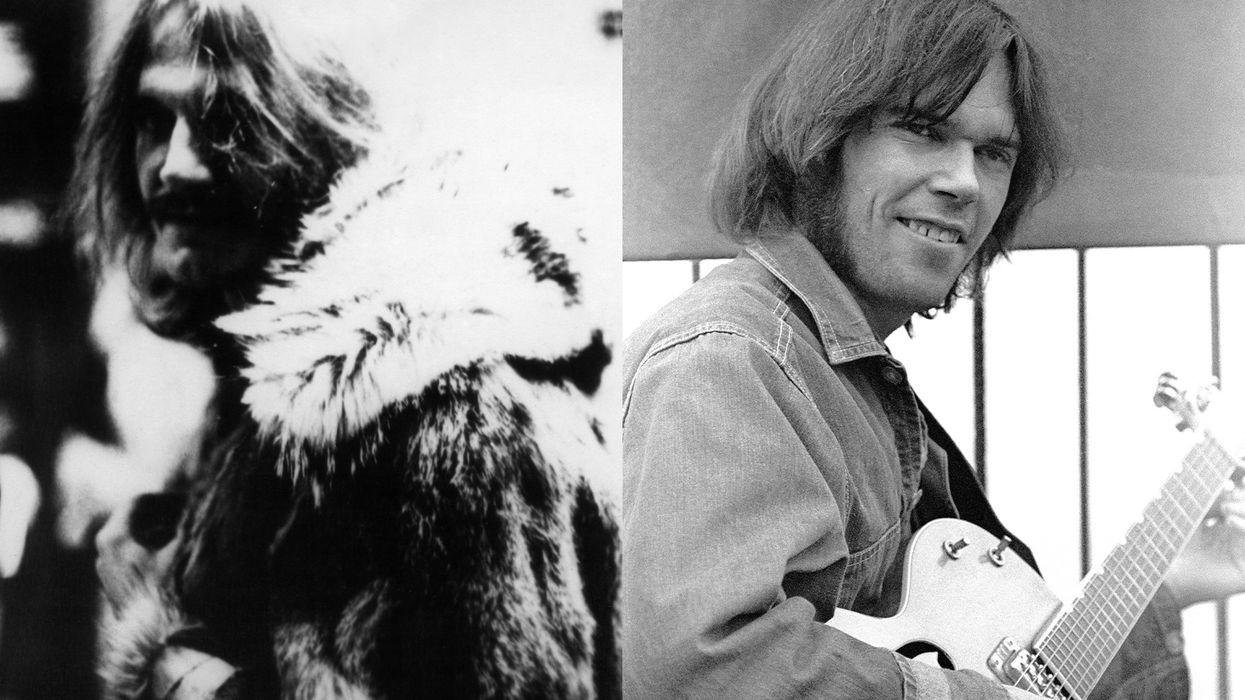
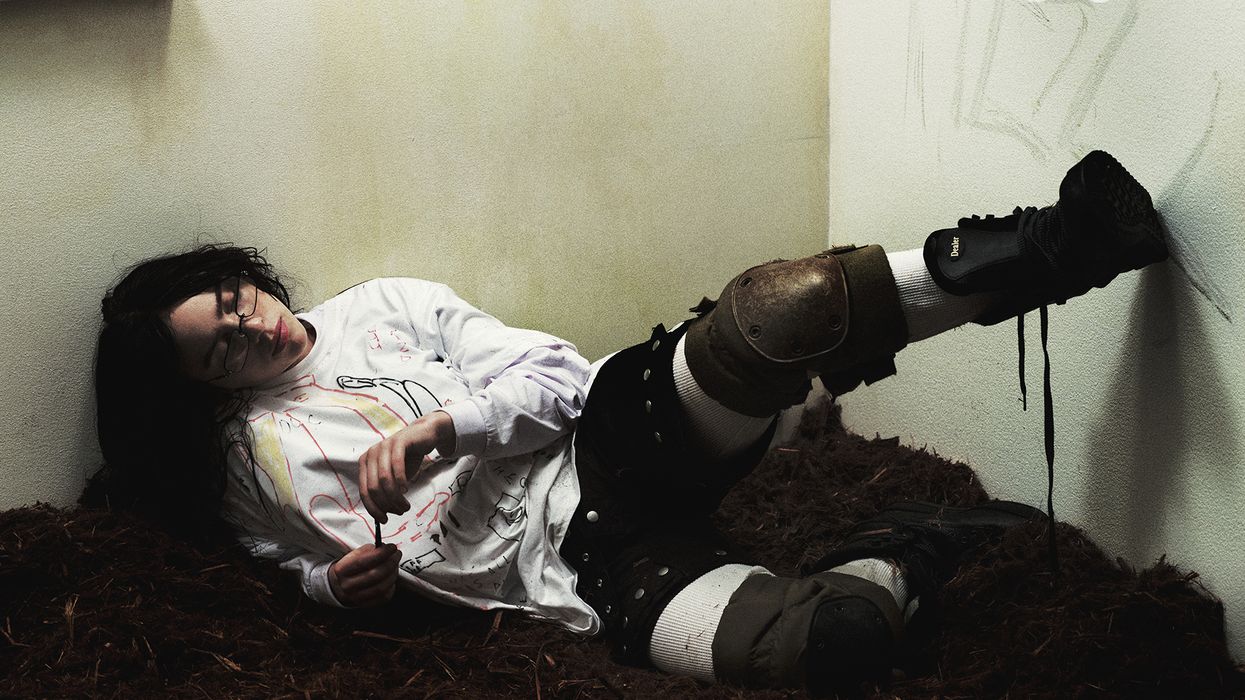




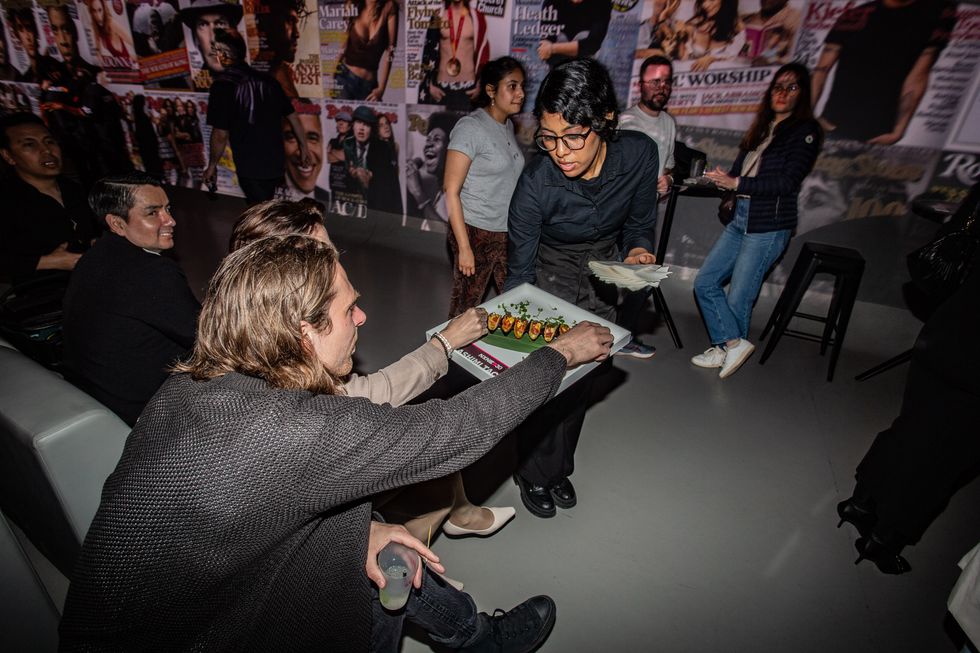 Catering Presented By The Food DudesPhoto by Snapdrg0n
Catering Presented By The Food DudesPhoto by Snapdrg0n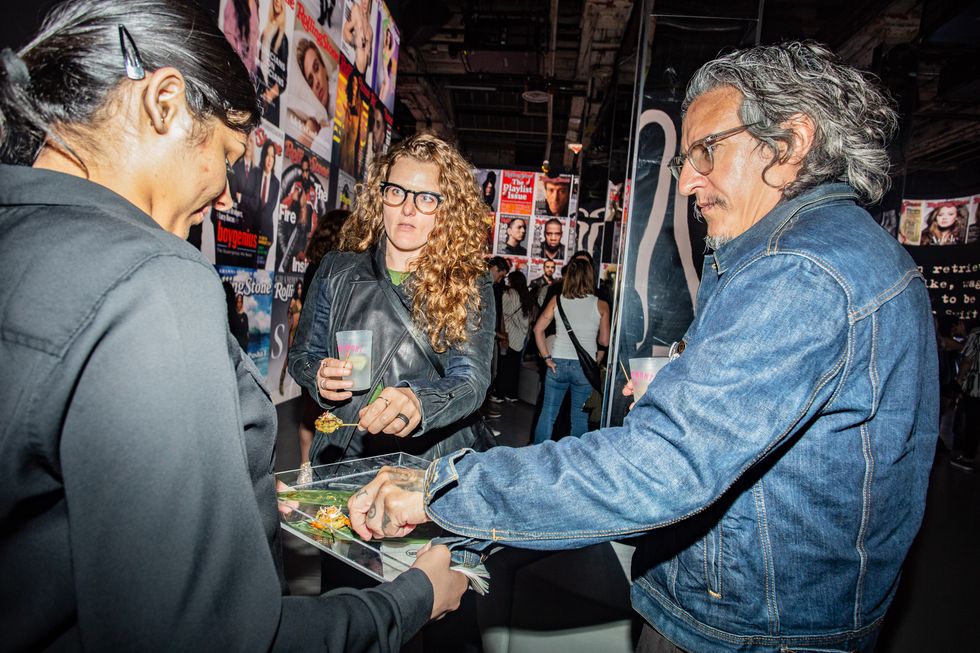 Catering Presented By The Food DudesPhoto by Snapdrg0n
Catering Presented By The Food DudesPhoto by Snapdrg0n Catering Presented By The Food DudesPhoto by Snapdrg0n
Catering Presented By The Food DudesPhoto by Snapdrg0n
 Photographer: Raphaëlle Sohier / Executive production: Elizabeth Crisante & Amanda Dorenberg / Design: Alex Filipas / Post-production: Bryan Egan/ Headpiece: Tristan Réhel
Photographer: Raphaëlle Sohier / Executive production: Elizabeth Crisante & Amanda Dorenberg / Design: Alex Filipas / Post-production: Bryan Egan/ Headpiece: Tristan Réhel Photo: Raphaëlle Sohier
Photo: Raphaëlle Sohier Photo: Raphaëlle Sohier/ Photo production: Bryan Egan/ Blazer:
Photo: Raphaëlle Sohier/ Photo production: Bryan Egan/ Blazer:  Photo: Raphaëlle Sohier/ Blazer: Vivienne Westwood/ Skirt :
Photo: Raphaëlle Sohier/ Blazer: Vivienne Westwood/ Skirt : 

